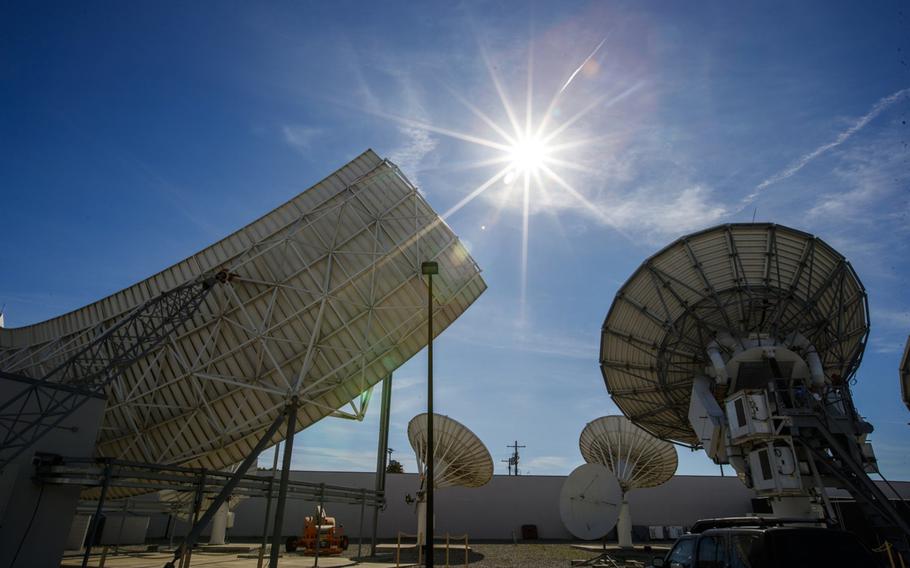
Satellite dishes are shown in Culver City, California, on Jan. 31, 2020. A Cold War-era satellite that was deemed “lost” after eluding detection for decades has finally been found. (Allen J. Schaben, Los Angeles Times/TNS)
(Tribune News Service) — An experimental spy satellite that was deemed “lost” after eluding detection for decades has finally been found.
“The S73-7 satellite has been rediscovered after being untracked for 25 years,” astrophysicist Jonathan McDowell said in an April 29 post on X, formerly Twitter. He says it reappeared on April 25, citing Space Force data.
The Cold War-era satellite, officially called the Infra-Red Calibration Balloon (S73-7), was just over 2 feet in diameter. The U.S. Air Force’s Space Test program launched it on April 10, 1974, with a much larger spy satellite, Gizmodo reported.
According to the outlet, the balloon was supposed to inflate after launch, but something went wrong. After the failure, teams back home lost track of the balloon twice — once in the 1970s and then again for much longer starting in the 1990s when ground-based sensors could no longer detect it.
For a quarter-century, analysts in the 18th Space Defense Squadron, the group responsible for tracking all human-made objects in Earth’s orbit, saw nothing of S73-7, Popular Science reported. In the minds of experts, the balloon was now lost in the world of “space junk.”
Then, suddenly, in late April, there it was. An analyst saw S73-7 show up on the sensor data, McDowell said. It was floating in Earth’s orbit as expected, but now scientists could track it again.
But how did scientists lose track of it in the first place?
S73-7 being small and largely non-metal makes it harder for the radar to detect, McDowell told Gizmodo. In addition, every day, scientists track over 20,000 pieces of equipment that surf Earth’s orbit, which can be a lot to keep up with.
A rediscovery like this is a triumph for analysts trying to keep track of the thousands of objects circling our planet. If one thing goes missing, it’s not a disaster. But if too many get lost, the risk of collisions and excess debris increases, according to United Nations University.
With objects in Earth’s orbit moving at 17,500 miles per hour, too much junk and shards of debris could be incredibly hazardous to satellites and anything else that may need to pass through the area in the future, Space.com reported.
©2024 The Charlotte Observer.
Visit charlotteobserver.com.
Distributed by Tribune Content Agency, LLC.